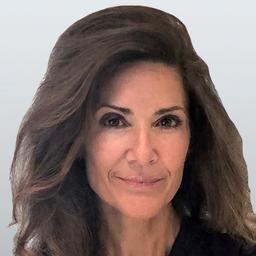With Valentine Day just behind us, what better time to take inventory of what is arguably the most important relationship of your life: your marriage.
In India, many marriages are still arranged. Parents pick a suitable mate and then in most cases the union begins coolly but grows into a blaze of passion over time. In the United States, it’s often just the opposite, causing us to sometimes question whether we’re going about it all wrong.
Dr. Evan Fewsmith, a Southern California-based marriage counselor practicing for 20 years, has helped hundreds of couples, and he’s noticed a recurring theme: Spouses don’t end up together by chance.
“We pick our partners with exquisite accuracy,” says Fewsmith. “We’re always playing out the roles that were assigned to us in our nuclear family. But it is possible to re-write that role.”
Often times we carry that past into our present relationships.As a way of avoiding, or at least understanding, the conflicts that arise when couples unconsciously interact in hurtful ways we learned growing up, Fewsmith advises that clients create something he calls a “geneogram.” It looks like a family tree, but rather than tracing genealogy, it maps out maladaptive patterns.
“We look at values, philosophies, paradigms and emotional temperatures of each family,” he says.
Such a practice can make it easier to see our own behaviors, because while it is often hard to acknowledge our own shortcomings, it is easier to see them in our parents. Recognizing we share these behaviors can be a major step toward changing them.Fewsmith describes what he terms “hot” and “cool” families. “Neither is good or bad, but if someone from a very demonstrative, loud family with a high emotional temperature ends up with someone from a ‘cool,’ reserved family, that person is going to feel neglected.”
Conversely, Fewsmith explains that someone from a “cool” family will feel assaulted by the spouse from a “hot” family.
Being aware of these differences can make it easier not to take certain things personally and instead recognize that this is just a difference in character that we or our spouse learned growing up.Marriage Counseling
For those that may not be as proactive about looking inside, or may struggle with healthy communication with their spouse, it can help to involve a skilled third party when persistent problems threaten our marriage.Anastasia Stern, a mother of three in Beverly Hills, comes from a “hot” family. Her parents divorced by the time she was 2. Because of this experience, she says she’s a big believer in marriage therapy and therapy in general.
“It’s the holistic part of a good marriage and the most important thing you can do for your relationship,” she says.
Stern believes therapy should not be stigmatized as a last resort for a crumbling marriage, but rather something that can help a marriage stay healthy and thrive.
“Harvey and I are madly in love and it’s really a gift to have that 19 years later,” she says. “But we work at it.”
Having had great success over the years with therapy herself and having witnessed the breakthroughs her father and his second wife achieved through ongoing marriage counseling, Anastasia convinced her then-boyfriend to try something new. Today the couple still checks in with their counselor every few months.
“When I’m in therapy with Harvey and I get into my angry, [expletive] mode—which is just a defense mechanism—he responds badly,” she says. “But when the therapist helps strip away those layers of defense and I become more vulnerable, Harvey’s much more likely to hear and to understand what I’m saying.” And she learned another trick in therapy: to communicate her feelings without putting the responsibility on her spouse.
“I stop saying, ‘When you do this, I feel that,’” she explains. “Instead I say, ‘When I see you do this, I make myself anxious because ...”






